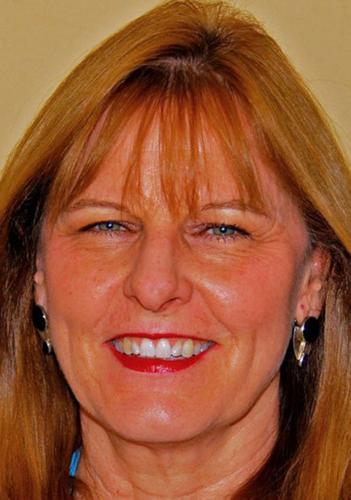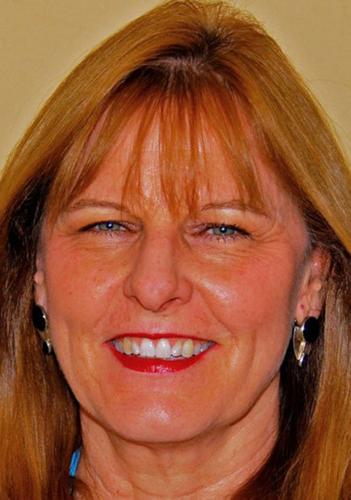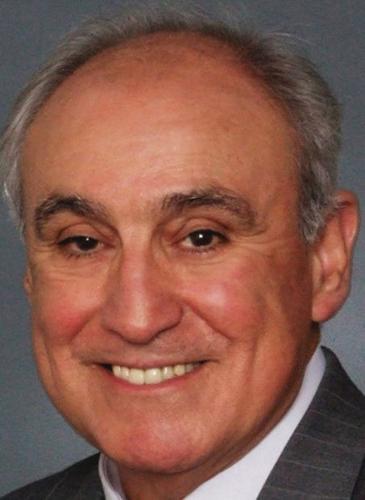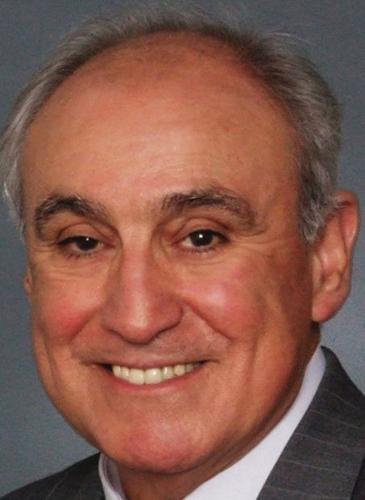Jacquelyn Jackson, a former administrator at Pima Community College, still shudders when she recalls the sound of her former boss bathing himself.
Roy Flores, the disgraced ex-chancellor accused of sexually harassing eight women at the college, would telephone Jackson from his bathtub, making it known that he was naked and soaping his body as they spoke, she said.
Once, she said, Flores summoned her to his office after hours, saying he wanted to talk shop. When she arrived, the lights were low. Love songs by Mexican crooner Luis Miguel wafted from a stereo as Flores began reciting a poem titled "Ode to a Beautiful Nude."
"With pure eyes I celebrate your beauty/Holding the leash of blood
"So that it might leap out and trace your outline/Where you lie down in my Ode,"
begins the poem by Chilean writer Pablo Neruda.
"It was creepy. It made me feel dirty. I had to keep making up excuses to get away from him," said Jackson, who joined the college in 2006 and didn't stay long.
She quit after less than a year and went to work for then-Rep. Gabrielle Giffords. She now runs a local nonprofit.
Another PCC administrator says Flores summoned her to his hotel room during an out-of-town conference a few years ago, ostensibly to discuss college business, then ordered her to lie down on his bed.
"He said it would be our little secret," said the woman, who asked not to be identified because she still works at the college.
She refused, she said, then kept quiet for years because she is her family's only wage earner and couldn't risk the wrath of her top boss, who seemed to have PCC's Board of Governors under his thrall.
"I was absolutely terrified of losing my job," said the woman, who said she's spent several thousand dollars on trauma therapy since the incident.
Three of the women who say they were harassed agreed to be interviewed to give the public a clearer picture of a situation that was gravely mishandled by the college, according to a recent report from PCC's accreditor.
The accreditor, the Chicago-based Higher Learning Commission, sent a team of investigators to Tucson early this year. Their findings affirmed the women's harassment claims and chastised the college's board and senior administrators for failing to report or investigate repeated warning signs about Flores' behavior.
None of the women realized until recently that many others at the college also had been harassed, the accreditor's report said.
Flores, 70, has denied wrongdoing in the past. He didn't respond Friday to two emails sent to his personal email account and two text messages sent to his last known cellphone number. He also didn't answer two phone calls, and his phone was not accepting messages.
When Flores left PCC last year, he and the college board misled taxpayers about the real reason for his departure, the accreditor's report said. They all claimed publicly that Flores was resigning for "health reasons" but he actually left when he did because the women had come forward to accuse him, the report said.
The Governing Board members in charge then - Brenda Even, Scott Stewart, David Longoria and Marty Cortez - were asked on Thursday afternoon to reply to written questions for this story. None did.
"Significant" errors
Neither did John Richardson, the Tucson lawyer who has been the board's adviser throughout the Flores years. Richardson did say the accreditor's report contains "significant" factual errors and that it would take him and the board until the middle of next week to respond to questions "given the very delicate legal issues" involved.
Board members who served under Flores have faced public calls for their resignations, but have so far said they intend to stay on to fix the college's problems.
PCC wasn't the first place Flores had been accused of sexual harassment.
In 1995, eight years before he came to Tucson, he made headlines in the Chicago Tribune when his secretary filed a complaint with Illinois' human rights commission. The secretary, a longtime employee at Elgin Community College, accused Flores, then the school's president, of exposing himself. Flores denied it.
Her complaint lingered in the state system for a year or so before she withdrew it without explanation. The Daily Star was unable to locate her to ask why.
It isn't clear whether PCC's board knew about the Illinois allegation when it hired Flores in 2003. That's one of the questions the board's lawyer said it needs more time to answer.
UNDER THE TABLE
A third woman, another former PCC administrator, said Flores started hitting on her within weeks of his arrival in Tucson.
The woman, a single mother, said Flores reached under the table at a college dinner and passed her a note with his cellphone number, asking her to call him for a late-night rendezvous.
She, too, says she made excuses to avoid him.
"I called and told him there was a problem with my baby sitter. I didn't really know what else to do," said the woman, who asked not to be identified because she still has ties to the college.
Days later, she said, Flores asked her to lunch and gave her a present: a CD titled "Romance" by Luis Miguel - the same singer Jackson remembers hearing in Flores' office when he tried to seduce her there three years later.
"It was totally inappropriate," said the woman who received the gift. She said she reported Flores to her supervisor, and said he didn't bother her after that.
BOARD INACTION
According to the accreditor, PCC board members had at least three indications - in 2008, 2010 and 2011 - that Flores was engaged in "inappropriate behavior."
Since the complaints were anonymous, the college's board took the position - wrongly, experts say - that it couldn't investigate them.
"The explanation provided by the board (that the complaints were anonymous) is not a viable reason for leaving very critical complaints against a senior college officer uninvestigated," the report said.
Whether board members drew the erroneous conclusion on their own or got that advice from elsewhere isn't clear. That's another question those involved didn't answer last week.
They also didn't comment on what investigators described as a situation that "could be perceived as a conflict of interest." It arose last year when PCC hired the wife of the college's legal adviser to investigate Flores' actions.
The board could have picked someone with no connection to the school to conduct the probe at arm's length, the report noted. Instead, it hired lawyer Alice Callison, who is married to PCC attorney Richardson. Both work for Tucson law firm DeConcini McDonald Yetwin & Lacy.
One of the issues an investigator like Callison could have examined was the quality of legal advice PCC received from Richardson during the years the board took no action on anonymous complaints, the accreditor's report said.
Callison didn't look at that issue, it said.
The Star has made several requests to PCC over the past year for a copy of Callison's findings. The college has refused, based on Richardson's advice that it isn't something the public should see.
PERFECT STORM
The accreditor's report describes a perfect storm of actions and inactions that likely played a role in PCC's failed handing of Flores' misconduct.
The school's harassment policy and its code of ethics, for example, which should have had regular reviews, went untouched for nearly a decade under Flores. Until recently, those documents hadn't seen daylight since the mid- to late 1990s, investigators said.
PCC board members have no training in sexual harassment issues, investigators also noted.
Star research also shows PCC's human resources department - responsible for enforcing federal anti-harassment laws - had a revolving door of leaders under Flores, and for two years had no leader at all.
In the nine years Flores was chancellor, three people held the top job in HR. A fourth, a former college marketing boss, oversaw the department from 2008 to 2010 while the top job was left vacant - the time frame when anonymous complaints started coming to the board.
The accreditor's report noted a "culture of fear and retribution" at PCC in which people were bullied into silence by Flores and other college brass. It said the college Governing Board was "dysfunctional" and had a "symbiotic" relationship with Flores.
VICTIMS SUFFER
The women Flores harassed "suffered physically, financially and emotionally," the accreditor's report said.
After spurning their top boss, "they feared and experienced retaliation." Several were disciplined, transferred or demoted six months or so after their run-ins with Flores, it said.
Sylvia Neal, a Tucson therapist who treats victims and perpetrators of harassment and other sexual trauma, said harassment victims can face aftereffects similar to those seen in women raped or children molested.
They include depression, anxiety, post-traumatic stress disorder, trust issues, relationship and sexual problems, and humiliation and shame. Often, harassment victims blame themselves, she said, because many perpetrators "set up a climate of blaming the victim to be sure they do not come forward."
Neal said harassers often develop "grooming" rituals to soften up victims, similar to a pedophile giving candy to a kid. They may heap praise on a woman's job performance, for example, or hint that promotions are possible. Women interviewed by the Star said that's what Flores did.
Of the eight who complained about Flores, only one has received redress from the college - a $30,000 settlement paid to a victim who filed a lawsuit.
Those who didn't sue have not been "financially compensated, apologized to or in any other way addressed by the board," the accreditor's report said.
UA APPROACH
Tucson's other main institute of higher learning, the University of Arizona, has procedures that would allow victims to be compensated - even if they didn't sue, and even if they kept quiet for years about widespread harassment that later was substantiated, said Mary Beth Tucker, who oversees UA's Office of Institutional Equity.
The UA looks into all claims of sexual harassment, even when complaints are anonymous, she said. Though such claims are harder to investigate, she said, it's crucial to do so to ensure the school is protecting workers and complying with federal law.
"If someone has been harmed, we want to take appropriate steps to remedy the harm," Tucker said.
It isn't clear if PCC intends to remedy the harm caused to victims there. That's another question college officials said they need more time to answer.
"It was creepy. It made me feel dirty."
Jacquelyn Jackson, former Pima Community College administrator, who says she was sexually harassed
Contact reporter Carol Ann Alaimo at calaimo@azstarnet.com or at 573-4138.








